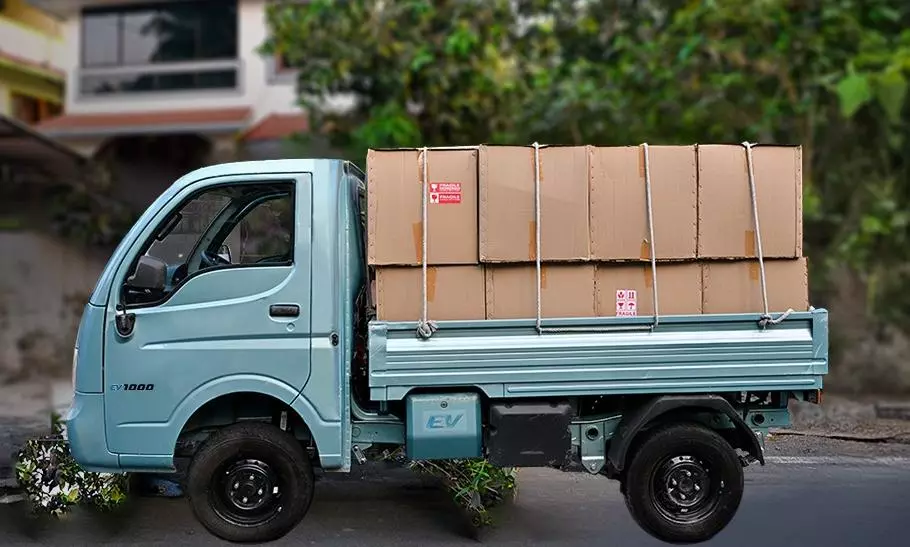Tata Motors launches Tata Ace EV 1000
The Ace EV is equipped with an advanced battery management system, Fleet Edge telematics system and robust aggregates for best-in-class uptime.

Tata Motors launched its new e-cargo mobility solution Ace EV 1000. Developed for last-mile mobility, this zero-emission mini-truck offers a payload of 1 tonne and a range of 161km on a single charge.
“The Ace EV is developed with rich inputs from its customers and the new variant will address evolving needs from various sectors like FMCG, beverages, paints & lubricants, LPG & dairy,” reads the release.
The Ace EV is equipped with an advanced battery management system, Fleet Edge telematics system and robust aggregates for best-in-class uptime.
Vinay Pathak, vice president & business head – SCV&PU, Tata Motors Commercial Vehicles, said “With the launch of the Ace EV 1000, we are extending the experience to customers who are looking at solutions with improved operating economics across the varied sectors they service. ”
The Ace EV is powered by EVOGEN powertrain that offers a 7-year battery warranty and a 5-year comprehensive maintenance package. It delivers safe, all-weather operations with an advanced battery cooling system and regenerative braking system to boost the driving range. It allows regular and fast charging capabilities for high uptime. It is powered by a 27kW (36hp) motor with 130Nm of peak torque, to ensure best-in-class pickup and grade-ability allowing easy ascend in fully loaded conditions.
Kamlesh Kumar, vice president- supply chain, Jumbotail, who attended the launch of Ace EV 1000 launch in Uttarakhand last week, pointed out challenges in EV adoption in a LinkedIn post.
Range is an essential criterion for the adoption of electric vehicles in the last mile.
“With Tata Motors' new product launch, they claim to cover 161 km of coverage after every charge, which effectively resolves the range issue. A range of 100km+ is generally suitable for any last-mile delivery within the city,” he wrote.
Durability is another crucial factor to consider.
“The battery warranty offered by Tata Motors is seven years (A game changer from the adoption perspective). The objective is to ensure that the vehicle owner maximises their returns while using the vehicle.”
He also pointed out other factors including inadequate charging infrastructure, operating costs of EVs and the resale value of EVs.
“The availability of these fast charging stations remains a concern. I propose that a franchise model for running charging stations could be a viable solution for fast scale-up plans in tier 1, 2, and 3 cities.
Comparing it with similar tonnage ICE engines, the per-day operating cost for EV vehicles is approximately ₹450 less for 100 Km operations, translating into a significant cost saving of 13500 Rs per month for the owner. The initial investment cost for EV vehicles is approximately ₹2 lakh more than ICE vehicles and remains a significant obstacle to adoption. The resale value of EV vehicles is still ambiguous, and companies need to address this concern for better adoption,” he wrote.



